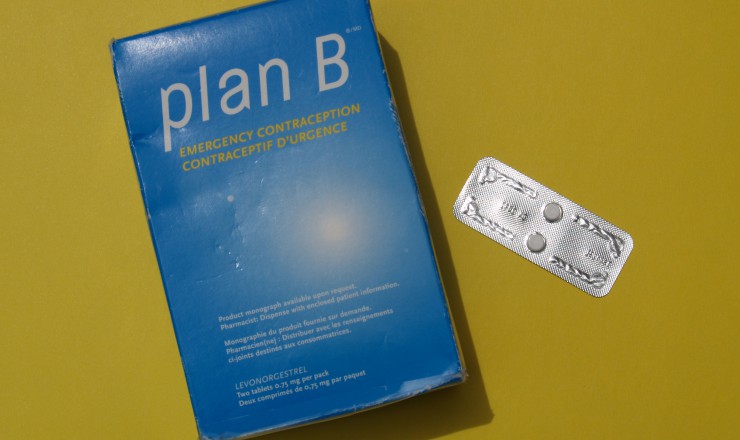Pain During Sex
Is it normal?
Unintentional pain during sex or masturbation is not normal. You may have heard that your first few times are supposed to be painful and that you’re just supposed to get through it but that’s not true! Regardless of your gender, or what genitals you have, sex (even your first time) is not supposed to be painful. This post will talk about where that pain comes from, how to deal with it, and some different ways to make sure it doesn’t happen again.
What can cause pain during sex?
Pain can happen for a lot of different reasons, some are medical conditions that can be treated (like sexually transmitted infections), while others might be chronic health conditions or injuries that require ongoing treatment or surgery. A really common source of pain is actually psychological–not being aroused or relaxed enough during sex. It can take a bit of trial and error to figure out exactly why it’s happening, but if you’re not certain why you’re experiencing pain, it’s a good idea to talk to a healthcare provider to try and find out more.
Physical Causes
As far as medical causes of pain go, the list can be pretty lengthy, but many of the issues can be easily identified and sorted out:
- Infections: infections can be sexually transmitted like chlamydia and gonorrhea, or could be the result of something like a yeast infection. STIs and yeast infections can affect people of all genders and sexes, and can usually be treated with medication like antibiotics.
- Irritation/Inflammation: sometimes people react to things like lubrication or latex, and that can cause irritation in or around their genitals. You might even find that a specific brand of laundry detergent or soap causes irritation and needs to be switched out.
- Small cuts or tears: sometimes sex that is rushed, rough, or doesn’t use enough lube can cause small tears in someone’s foreskin, in their rectum, around their anus, or around their vagina, vaginal walls, or labia. These tears aren’t always easy to see as they don’t usually bleed or appear visible to the naked eye. Usually these tears will heal on their own if the area is kept clean, but if they persist you may need to try using a medicated ointment or other treatment depending on your doctor’s advice.
- Health conditions: a lot of different health conditions can cause pain during sex. Most of them have to do with inflammation or swelling of sex organs like the prostate, but it may come from issues like cysts on ovaries and testicles. Other conditions like endometriosis or fibroids cause tissue to grow in places it wouldn’t normally in people with uteruses. You may even experience pain during sex if you have digestive issues like IBS or constipation!
- Hormonal changes: this one sort of fits into both categories. On one hand, hormonal changes may lead to someone being unable to get wet or hard due to an imbalance, while on the other it might be that their hormones are directly affecting their mental state causing them to not experience arousal. Medications like birth control, hormone replacement therapy, or antidepressants like SSRIs may all impact how easy it is for someone to be turned on enough for sex.
| A REMINDER |
| Sometimes when a person becomes aroused but doesn’t ejaculate, it can cause temporary pain or discomfort in their testicles sometimes called “blue balls”. This isn’t considered to be a serious health condition, and usually goes away after a person ejaculates or waits for a bit for it to subside. It is not reason to coerce someone else into continuing sex when they’re not comfortable with it (in fact, nothing is). |
Psychological Causes
A super common cause of pain during sex comes from not being able to relax. Most people aren’t always ready for penetration, it often takes a combination of foreplay and being in the right headspace to make it happen. It’s generally a bad idea to try and force your way through a mental block, as that can lead to injuries and irritation like we talked about above. Instead, taking a break, using lubrication, trying new strategies and techniques to stimulate yourself or your partner are all good options to make things go smoother. You might be tempted to just deal with it because you know your partner is in the mood for it and you don’t want to make them feel bad, but you deserve to enjoy pain-free sex too! Your sexual comfort and safety are just as important as your partner’s, and if things are feeling painful or uncomfortable you have every right to stop and take a break until you figure things out.
One tool that some people find helpful is called the dual-control sexual response model. That might sound super scientific, but it’s a pretty straight-forward idea! The analogy that’s often used to talk about this model is to think about your sexual response (getting turned on) like a car. When something turns you on, it’s like putting your foot on the gas. When something turns you off, it’s like putting your foot on the brake. In cases where a person might be feeling pain, discomfort, or general anxiety around sex, it might seem like a good idea to keep trying things to turn them on (pressing down on the gas) but what happens to a car when your foot is on the gas and the brake at the same time? It doesn’t move (or if it does, it might lurch forward in a weird way and cause an accident)!
You can think about arousal in a similar way: instead of trying new things to turn the other person on (which might actually cause more nervousness), think about ways to take their foot off the brake. Maybe they’re too tired or had a really stressful day, maybe their mind is somewhere else and they just can’t focus on sex right now, maybe the last time you had sex was really painful and they’re worried it’ll happen again so they can’t relax. It might take a conversation or a break to figure it out but it’ll be worth it! There are so many valid reasons why a person might find it difficult to get turned on, and trying to go ahead with sex anyway can be uncomfortable, painful, and might even damage your relationship with them.
Stopping it before it starts
There’s unfortunately no way to guarantee that you’ll never experience pain during sex, but there are a lot of options available to you to decrease the chances of it happening, and a lot of options available to you to remedy it when it does.
- Keeping tabs on your sexual and reproductive health with regular STI testing, health checkups, and general mindfulness around what’s normal for your body can catch any persistent health issues before they become too big of an issue.
- Experimenting with masturbation and other forms of self-pleasure can give you a clearer idea of what you might like or not like to do with another person, and give you a better sense of what turns you on and gets you excited for sex.
- Having clear communication with your partner about how you’re feeling both mentally and physically, being open to taking breaks, and generally being mentally present during sex can ensure you feel safer and more comfortable slowing things down, trying different things out, and talking through whatever might be bothering you enough to cause pain.
We’ve said it before but we’ll say it again, you deserve to have sex that is consensual, pain-free, comfortable, pleasurable, and fun!
Further Reading
- Performance Anxiety – Teen Health Source
- Making Sex Feel Good – Teen Health Source
- Why Does Sex hurt? – National Health Service
- The Science of Desire – Oh Joy Sex Toy!
If you have questions about this topic, feel free to contact one of our peer educators. [Link]
Last edited: December 2023.






